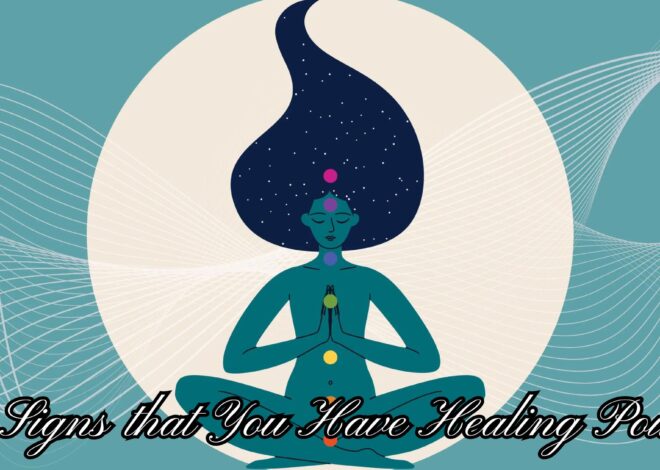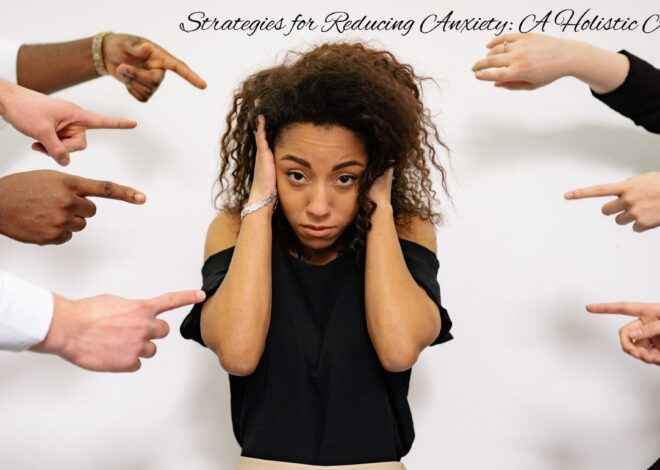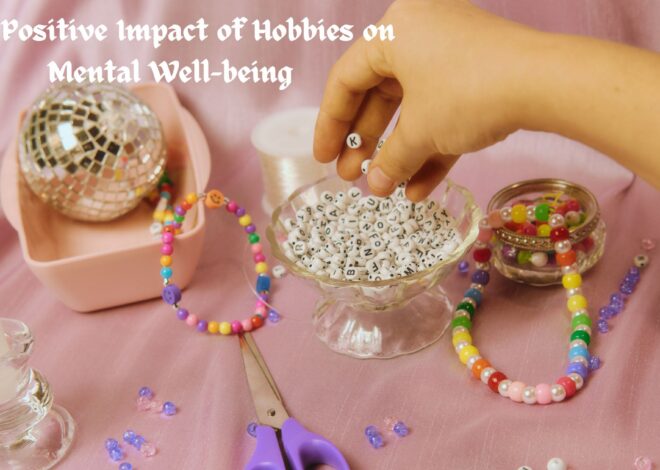
The Power of Forgiveness: Liberating Your Heart from Past Hurts
Letting go of grudges and traumas from the past frees the heart via the transforming act of forgiveness. Letting go of resentment, hatred, and desire for vengeance toward people who have harmed us is a choice. Comprehending the power of forgiveness is crucial when setting out on a path towards psychological recovery and individual development.
The Psychological Impact of Holding Grudges
It might be harmful to our mental health to hold onto grudges and resentments. Stress, anxiety, and depression can worsen as a result of the psychological toll that carrying unresolved injuries takes. We cannot truly experience happiness and contentment while we harbor resentment because it contaminates our minds and creates negativity.
Benefits of Forgiveness
There are numerous advantages to accepting forgiveness on an emotional and societal level. We can break free from the bonds of the past and let healing and inner peace into our hearts by letting go of pent-up wrath and resentment. By fostering empathy, compassion, and understanding, forgiveness promotes stronger bonds and deeper connections with other people.
- Emotional Healing: People who forgive themselves are able to let go of hurt, anger, and resentment, which promotes inner serenity and emotional healing.
- Freedom from Bitterness: People who let go of grudges and resentment feel lighter and more liberated since they are no longer burdened with unpleasant emotions.
- Improved Mental Health: Reductions in stress, anxiety, and sadness have been associated with forgiveness, which enhances mental health in general.
- Enhanced Relationships: Accepting forgiveness promotes understanding, empathy, and compassion, which strengthens bonds with people and improves relationships.
- Personal Growth: Being able to forgive is a process of self-awareness and personal development that enables people to build resilience and learn from their past experiences.
- Increased Self-Compassion: People who forgive others also show compassion for themselves, releasing themselves from feelings of guilt and self-blame.
- Lowered Risk of Chronic Illness: Research indicates that by lowering stress levels, forgiving others may help reduce the chance of developing chronic illnesses like heart disease and hypertension.
- Promotion of Inner Peace: Research indicates that by lowering stress levels, forgiving others may help reduce the chance of developing chronic illnesses like heart disease and hypertension.
- Strengthened Immune System: It has been demonstrated that forgiving others and letting go of grudges and anger strengthens the immune system, which improves physical health.
- Improved Coping Skills: Power of forgiveness improves a person’s capacity to overcome obstacles in life by acting as a coping strategy for emotional scars and prior traumas.
Steps to Forgiveness
The process of forgiveness calls for bravery, introspection, and sensitivity. Recognizing the suffering and hurt inflicted by others is the first step, as is allowing ourselves to experience and deal with these feelings without passing judgment. In order to let go of resentment, we must learn to show empathy and compassion for the people who have harmed us and accept their humanity and shortcomings. We can regain our power of forgiveness and control over our emotions by moving on without harboring resentment, which opens the door to emotional healing and development.
- Acknowledge the Hurt: Recognizing the suffering and hurt that other people’s acts have caused is the first step towards forgiving them. This entails acknowledging and embracing the feelings triggered by the transgression.
- Acceptance of Feelings: Let yourself experience all of the feelings that come up, such as sadness, betrayal, and rage. It’s critical to acknowledge your emotions and allow yourself the freedom to experience them.
- Letting Go of Resentment: Let go of any grudges and hatred that have accumulated over time. Recognize that harboring resentment only serves to prolong suffering and impedes your personal development and recovery.
- Practice Empathy: Consider the matter from the viewpoint of the one who has harmed you. By developing empathy, you will more easily forgive them since you will be able to relate to them and understand why they did what they did.
- Choosing Forgiveness: Letting go of your anger and resentment towards the person who wronged you is a deliberate choice to practice forgiveness. It’s about releasing oneself from the weight of harboring bad feelings, not about endorsing what they did.
- Releasing Expectations: Give up on expecting the other person to apologize or make amends. Finding inner serenity in spite of outside events is the essence of forgiveness.
- Setting Boundaries: Setting boundaries is crucial when forgiving someone in order to keep oneself safe. When required, articulate your boundaries assertively and set clear boundaries that align with your needs and ideals.
- Cultivate Compassion: Show compassion to both the person you are forgiving and to yourself. Acknowledge that everyone, including yourself, is human and deserving of compassion.
- Practice Self-Care: Take part in pursuits that enhance your well-being and encourage self-care. Spend time relaxing, getting enough sleep, and pursuing interests that make you happy and fulfilled.
- Letting Go of Grudges: Let go of the past and concentrate on the here and now. Reminiscing on old grudges simply makes life more difficult and keeps you from moving on.
- Seek Support: It can be difficult to forgive someone, so don’t be afraid to ask for help from a therapist, family member, or trusted friend. You can acquire perspective and clarity by talking about your emotions and experiences.
- Focus on Growth: Consider forgiving others as a chance for personal development and improvement. Make the most of the event to strengthen your inner fortitude, become more resilient, and discover more about yourself.
- Practice Gratitude: Develop an attitude of thankfulness for the knowledge gained and the personal development brought about by the encounter. Experiencing gratitude can change your viewpoint and lead to feelings of calm and satisfaction.
- Release the Need for Revenge: Give up any desire for vengeance or retaliation. Retaliation-related ideas simply serve to exacerbate unpleasant feelings and obstruct genuine forgiveness.
- Embrace Forgiveness: Lastly, accept forgiveness as a self-gift. Realize that extending forgiveness to others is a liberating and self-loving act that enables you to proceed with compassion and grace.
The Connection Between Forgiveness and Self-Love
Being able to forgive oneself is an act of kindness as much as it is for others. We are freed from the cycle of guilt and self-blame when we forgive those who have wronged us and let go of the past. Being able to forgive ourselves enables us to accept our flaws and grow from our mistakes without focusing on the past. It also fosters self-compassion and self-love.
Overcoming Barriers to Forgiveness
Even while power of forgiveness has many advantages, it might be difficult to let go of long-standing grudges and animosity. It takes time, patience, and introspection to deal with hurt and betrayal sentiments. Rebuilding trust after forgiveness can be difficult since it calls for transparency and openness. But we may overcome them and feel the freeing power of forgiveness if we face these obstacles head-on and exercise empathy and understanding.
Practicing Forgiveness in Everyday Life
Being able to forgive is a constant practice that takes effort and commitment; it is not a one-time thing. Letting rid of grudges and resentments as they come up and substituting compassion and understanding for unfavorable thoughts are key components in developing a forgiving mindset. We can protect ourselves from future injury while still showing empathy for others by setting limits and forgiving.
The Role of Forgiveness in Mental Health
Several research have demonstrated the beneficial effects of forgiveness on mental health. Resolving emotional scars and past traumas via forgiveness reduces tension, anxiety, and depressive symptoms. We create the path to increased emotional resilience and wellbeing by letting go of unfavorable feelings and accepting forgiveness.
Forgiveness in Relationships
Rebuilding damaged connections and fortifying ties with others depend heavily on power of forgiveness. By forgiving people who have harmed us, we make room for healing and peacemaking, which builds connection and trust. But in toxic or abusive relationships, it’s important to respect boundaries and put self-care first because forgiveness does not always equate to reconciliation.
Cultural and Religious Perspectives on Forgiveness
Forgiveness has profound roots in many different religious and cultural traditions. Forgiveness is viewed differently in different cultures and belief systems, with a focus on concepts of compassion, reconciliation, and redemption. The worldwide significance of forgiveness in fostering peace and harmony is highlighted by the fact that major religions including Christianity, Islam, Buddhism, and Judaism all have forgiveness-related teachings.
The Impact of Forgiveness on Physical Health
Forgiveness not only offers psychological advantages but has also been connected to better physical health results. According to studies, forgiving others can improve immunity, decrease inflammation, and lower blood pressure. Power of forgiveness enhances general health and longevity by relieving the body of stress and anxiety.
Forgiveness and Personal Growth
Accepting forgiveness is a way to promote personal development in addition to letting go of past wrongs. We develop resilience, empathy, and compassion by taking lessons from our past and making the decision to forgive. By forgiving one another, we are able to release ourselves from the bonds of the past and approach life with a fresh sense of hope and purpose.
Forgiveness and Empathy
Empathy and forgiveness are closely related since they both call for us to comprehend and relate to the experiences of others. By forgiving others, we show empathy for them and acknowledge their humanity and potential for improvement. Similarly, by developing empathy, we become more capable of forgiving others since we can relate to their suffering and difficulties.
Practical Tips for Cultivating Forgiveness
The process of developing forgiveness takes time, introspection, and practice. Journaling and meditation are two self-reflection techniques that can support us in processing our feelings and gaining understanding of our thought and behavior patterns. A forgiving mindset can also be fostered by engaging in acts of gratitude and compassion toward oneself and others. This enables us to fully accept forgiveness and let go of past hurts.
Conclusion: Embracing Forgiveness for a Fulfilling Life
To sum up, power of forgiveness is an effective technique for freeing the heart from grudges and traumas from the past. We make room for healing, inner serenity, and personal development when we let go of resentment, hatred, and desire for vengeance. Empathy, compassion, and understanding are nurtured by forgiveness, and this promotes general well-being, stronger emotional resilience, and better relationships. Although accepting forgiveness is not always simple, it is a path worth going on if you want to live a happy and purposeful life.



